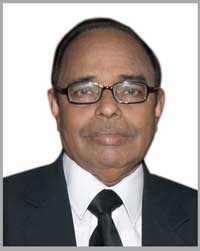Reply To:
Name - Reply Comment
Last Updated : 2024-04-25 14:06:00
 The war is over. Normalcy has been established and no proclamation of the state of emergency exists. People are the recipients of peace and order. Many hail the government and the armed forces for restoring peace and order. In the process they regard the army sacred and sacrosanct as the army along with the members of the other armed forces has won the war, sacrificing their lives, life and limb, thereby they entertain a notion that, on the invitation of any concerned person, the army could be deployed for ‘military operation’ to use their guns and/or exercise the powers of the civil authorities even when there was no proclamation of a state of emergency.
The war is over. Normalcy has been established and no proclamation of the state of emergency exists. People are the recipients of peace and order. Many hail the government and the armed forces for restoring peace and order. In the process they regard the army sacred and sacrosanct as the army along with the members of the other armed forces has won the war, sacrificing their lives, life and limb, thereby they entertain a notion that, on the invitation of any concerned person, the army could be deployed for ‘military operation’ to use their guns and/or exercise the powers of the civil authorities even when there was no proclamation of a state of emergency. those acts constitute any breach of the provisions of any law is another question but they remain as private citizens and they cannot in any manner indulge in any kind of military operation or exercise the powers of the civil authorities unless they are called out for those purposes by the President by proclamation of emergency regulations in terms of the Public Security Ordinance.
those acts constitute any breach of the provisions of any law is another question but they remain as private citizens and they cannot in any manner indulge in any kind of military operation or exercise the powers of the civil authorities unless they are called out for those purposes by the President by proclamation of emergency regulations in terms of the Public Security Ordinance.
Add comment
Comments will be edited (grammar, spelling and slang) and authorized at the discretion of Daily Mirror online. The website also has the right not to publish selected comments.
Reply To:
Name - Reply Comment
US authorities are currently reviewing the manifest of every cargo aboard MV
On March 26, a couple arriving from Thailand was arrested with 88 live animal
According to villagers from Naula-Moragolla out of 105 families 80 can afford
Is the situation in Sri Lanka so grim that locals harbour hope that they coul